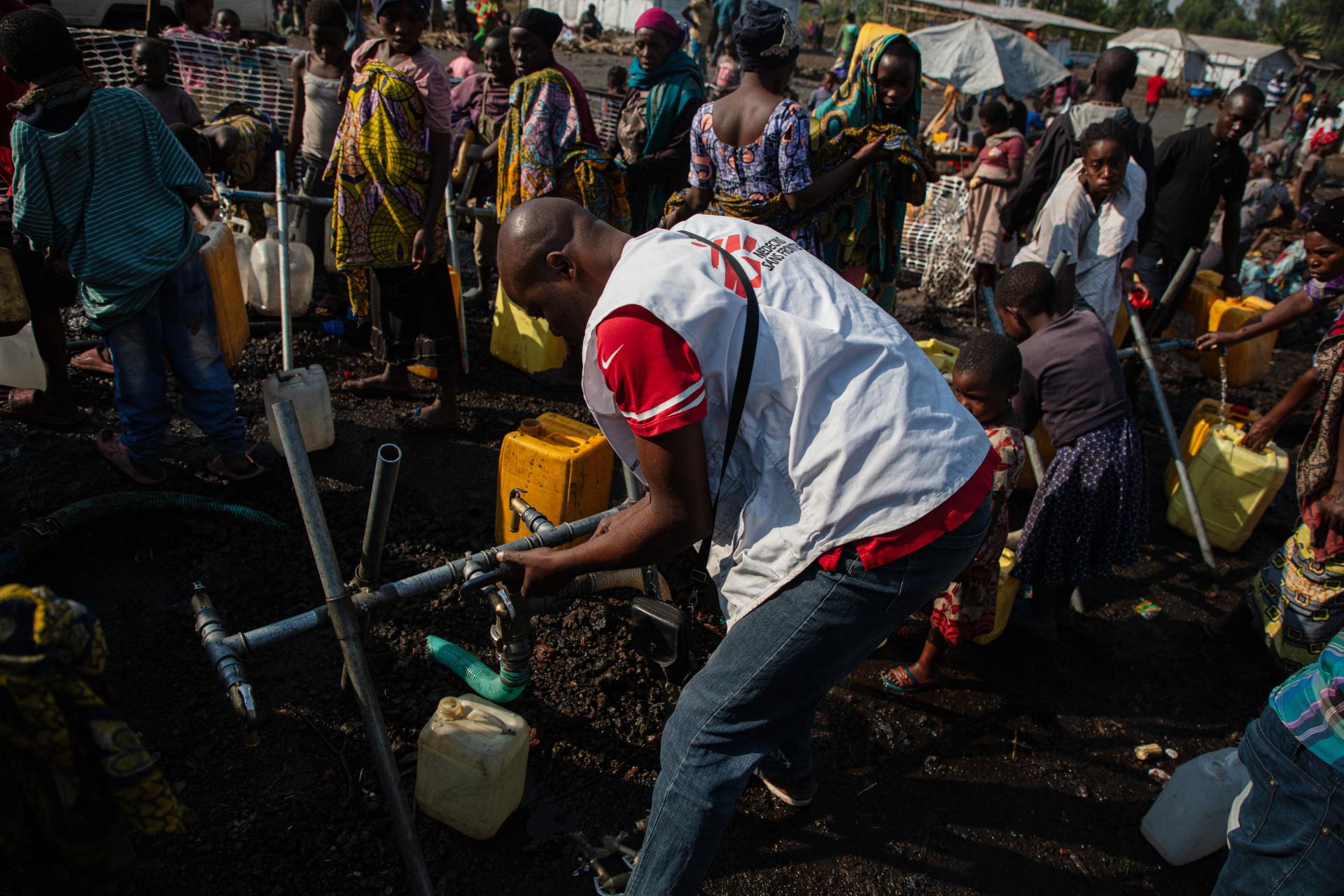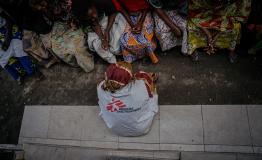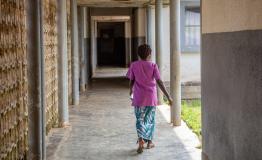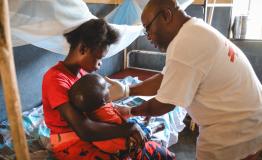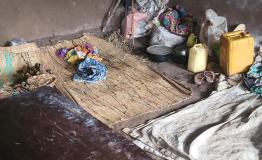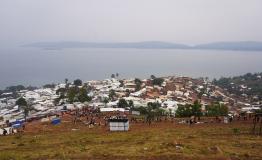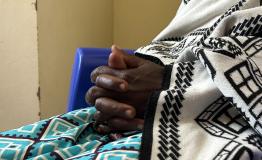Doctors Without Border (MSF) provided a wide range of services in DRC, including general and specialist healthcare, comprising surgical activities, vaccinations, paediatric care and support for victims of sexual violence. Once again, in 2021, the treatment and prevention of infectious diseases was a major focus of our activities.
Responding to disease outbreaks
Just months after the authorities declared the massive measles outbreak of 2018-2020 over, the number of cases started to rise again in several provinces of DRC. In response, we rapidly resent our mobile teams to help curb the spread of this extremely contagious disease.
Throughout the year, our teams carried out vaccination campaigns and treated tens of thousands of patients, mostly children under five. A large number of epidemic hotspots meant that measles activities accounted for the vast majority of our emergency interventions during the year. In addition to these emergency responses, we supported the authorities to strengthen preventive vaccination, diagnosis and epidemiological surveillance.
Measles is not the only contagious disease that is endemic in DRC. In 2021, our teams also responded to cholera, typhoid fever, meningitis and malaria, as well as two Ebola outbreaks in North Kivu in February and October. We supported surveillance, triage, diagnosis and care in health and isolation facilities, and ran mobile clinics to assist patients, their families and the communities in the affected areas.
As two new waves of COVID-19 hit the country – mostly affecting the capital, Kinshasa – we supported care at the University Clinics of Kinshasa and other treatment centres, which were receiving many patients in May. We also launched several emergency interventions outside the city and implemented measures to strengthen isolation and treatment for COVID-19 in all the facilities we support.
Tackling the silent epidemic of HIV/AIDS – a disease that causes the deaths of nearly 17,000 people each year in DRC – remained another medical priority for MSF in Goma and Kinshasa, where we continued to provide treatment for patients living with advanced-stage disease. At the request of the Ministry of Health, we expanded our advanced HIV support by training staff in hospitals in Bunia (Ituri), Mbuji-Mayi (Kasai Oriental) and Boma (Kongo Central).
The devastating effects of violence
Following an escalation in armed violence in the provinces of Ituri and North Kivu, the government declared a state of siege in May that was still in place at the end of the year. Intense armed clashes and targeted attacks on civilians forced thousands of people to flee their homes and exacerbated the already critical health needs.
Our teams managed to maintain our basic and specialist healthcare services in the two provinces, including maternal and paediatric care, surgery and treatment for malnutrition, while also responding to the specific needs of displaced people and their host communities through mobile consultations, ambulance referrals, provision of water and sanitation facilities, and distribution of mosquito nets, buckets and cooking sets. We carried out these activities at more than 20 displacement sites in Ituri alone.
Unfortunately, MSF and other humanitarian organisations were not spared from the violence. In October, we had to suspend our activities in Bambo and Nizi (Ituri) following an armed attack of one of our teams, in which two staff members were wounded. Several times in North Kivu our teams witnessed armed men forcing their way into MSF-supported health facilities, in direct violation of international humanitarian law. The increase in criminality led some MSF projects to reduce or even stop all movements by road. In South Kivu, we had to close two longstanding projects in Baraka and Kimbi, where we had been assisting people displaced by intercommunal violence, following a series of critical incidents affecting our teams in late 2020.
Throughout the year, our teams provided medical and psychological support to thousands of victims of sexual violence in the conflict-affected provinces of North Kivu, South Kivu, Ituri and Maniema. In Kasai Central, where there was no active fighting, we treated more than 270 victims each month, which demonstrates the extent of this issue even beyond war-torn areas.
The Nyiragongo emergency
On 22 May, Nyiragongo volcano, near Goma in North Kivu, erupted, forcing hundreds of thousands of people in and around the city to abandon their homes in search of safety. Very quickly, more than half a million people found themselves without access to shelter, drinking water or food, and cut off from humanitarian aid as the roads were destroyed and the airport closed.
MSF provided emergency support in Sake, where many people had sought refuge, as well as in Goma and on the road to Rutshuru. Our priority was to provide drinking water to displaced people and host communities through the installation of water bladders. To avoid an outbreak of cholera, our teams installed chlorine dispensers in key locations and near water sources, built latrines, supported the Sake cholera treatment centre and carried out hygiene promotion activities. We also supported healthcare facilities to deal with the influx of patients through donations of medicines, medical equipment and mattresses.
In Rutshuru, where tens of thousands of people had fled following the eruption, MSF teams offered basic healthcare and referred patients needing specialist treatment to the local hospital. We also constructed water and sanitation facilities. As many people returned to Goma after just a few days, we supported health centres in the city with basic healthcare consultations, medicine and hygiene items.


